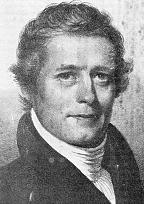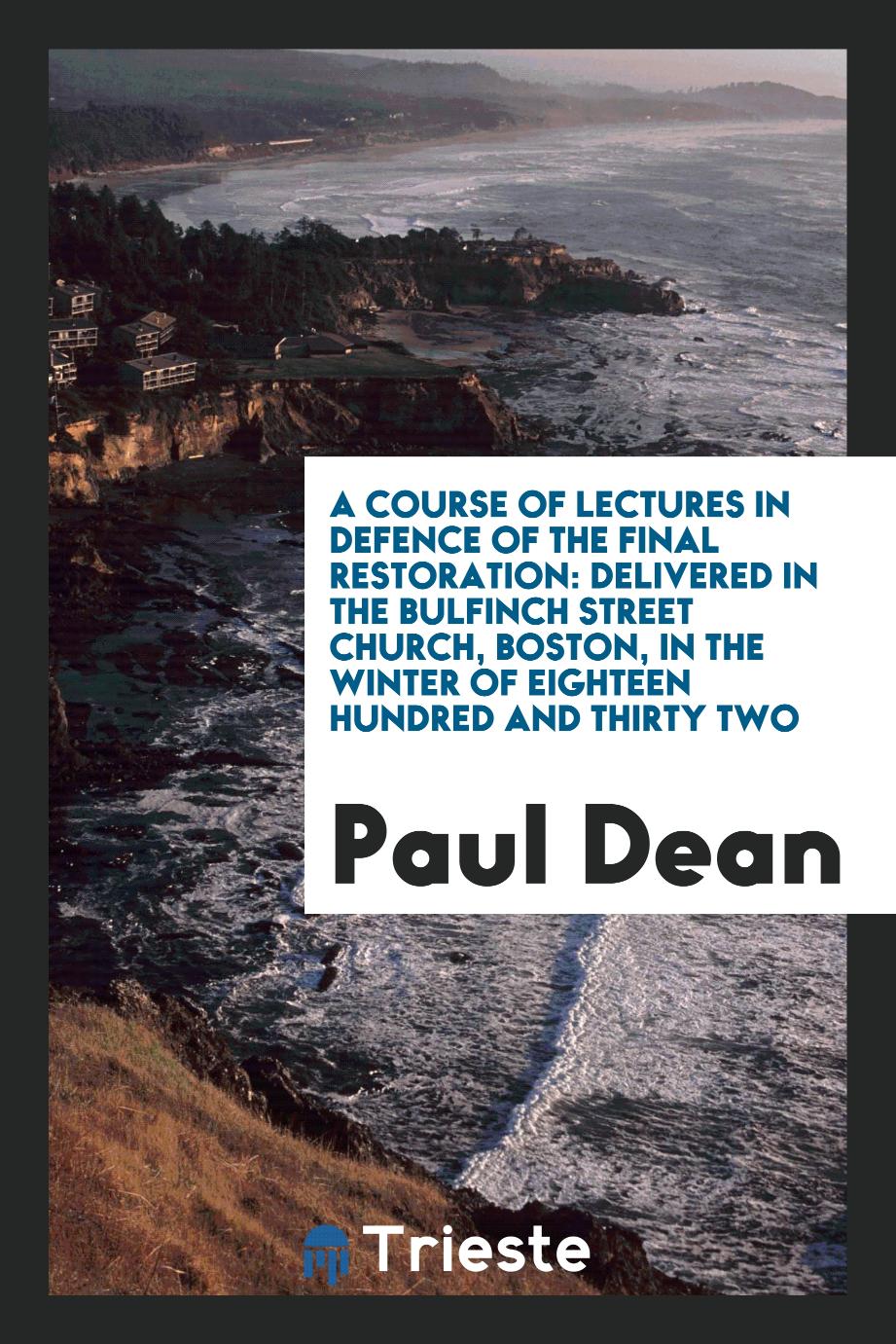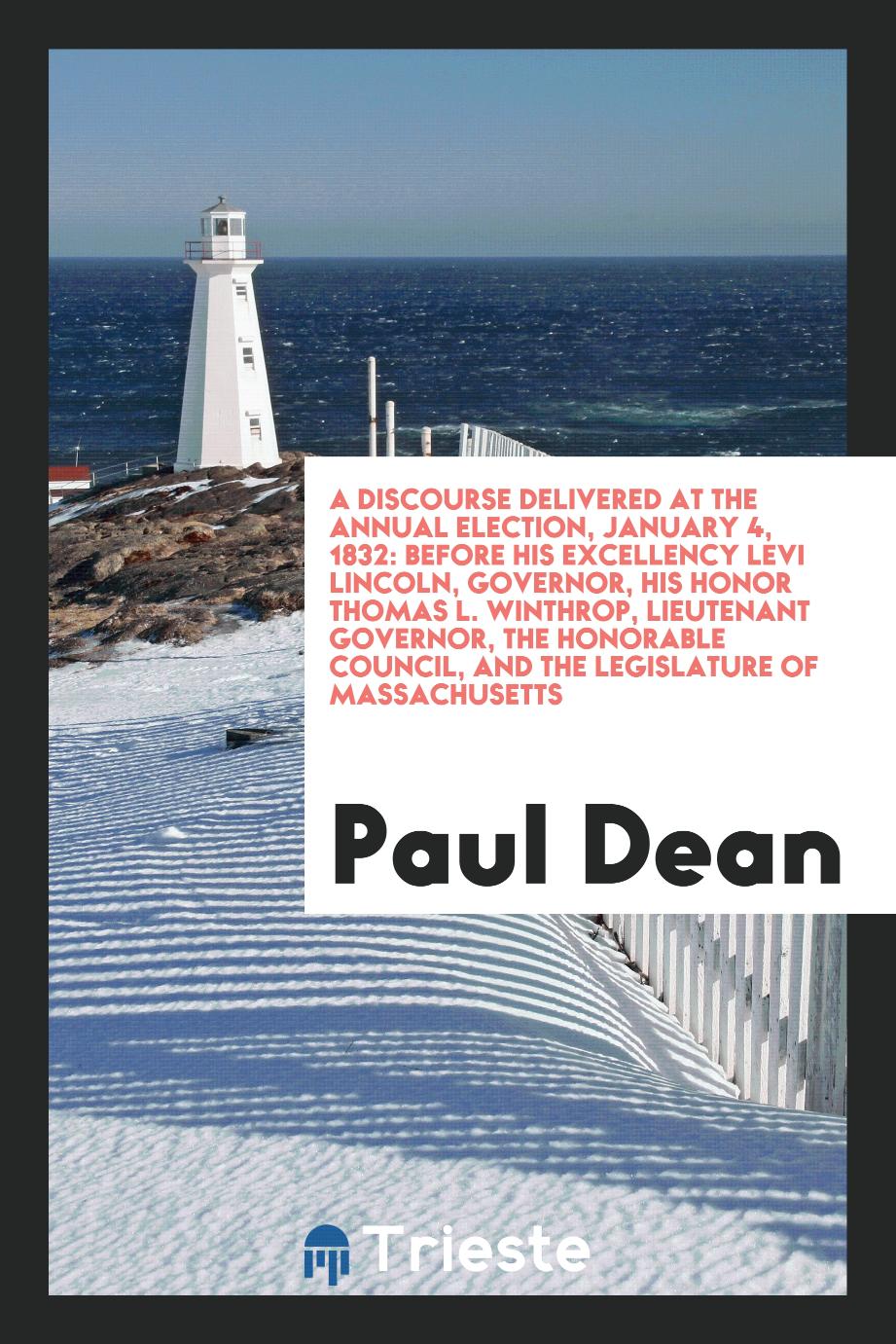
Paul Dean
Paul Dean (March 28, 1783-October 1, 1860) was a prominent Universalist evangelist and minister in the early 19th century, a rival of Hosea Ballou, a leader of the Restorationists, and the only Universalist preacher of his generation to remain a trinitarian. He was long an active Freemason and held some of the highest Masonic offices in the country. Born in Barnard, Vermont, Paul was the eldest son of Seth and Molly (Bicknell) Dean. As a young man Seth had become a Universalist in his home town, Hardwick, Massachusetts and influenced many others in his family, including his wife, to convert as well. His children were brought up in the faith. The Deans claimed membership going back to 1792 in the Universalist society in nearby Woodstock, Vermont. In 1802 Seth and others founded the Universalist society in Barnard and shortly afterwards called Hosea Ballou to be their minister. 1805 was a year of significant beginnings for young Paul Dean. In January he was initiated into the Mason's Center Lodge in Rutland, Vermont. In June he married Frances Dennison with whom he had 8 children, 4 of whom lived to adulthood. In September the Universalist General Convention accepted him into fellowship. He was ordained in 1806 at the meeting of the Convention in Hoosick, New York. Dean lived in Montpelier, Vermont, 1805-10, and was an itinerant preacher in central Vermont and New Hampshire. In this period Dean became acquainted with William Farwell of Barre, Vermont, an experienced Universalist preacher from whom he learned to debate non-Universalists in a conciliatory, not confrontational, way. In 1810 Dean moved to New Hartford (later Utica), New York to join Nathaniel Stacy in evangelizing central New York State. Stacy called Dean "the most successful preacher we ever had among us." A polished speaker and a skilled controversialist, Dean successfully debated Methodist and Presbyterian ministers. He much weakened objections to the doctrine universal salvation by conceding punishment in the afterlife. One day, while he and Stacy were riding their circuit, Dean confessed to Stacy that he meant in a few years "to be able to preach as well as brother Ballou; I can spin as fine a thread now as he can, if it is not quite so strong." Dean believed the moral dimensions of such issues as slavery, war and capital punishment could be discussed by an appeal to the Bible. It was, however, up to each Christian to decide what scripture meant in these cases and that one should do this "without disturbing the state." Attempts to change laws or forms of society, he thought, should be made by purely political means and without putting the churches into turmoil. His reform-minded colleagues did not heed his advice. A few years later Adin Ballou took a significant portion of MAUR's members with him into the utopian Hopedale community. Remaining Restorationists were too few and too discouraged to continue. Dean wrote a letter to Ballou, telling him his community scheme was a "bursting bubble," that "people were too selfish, weak, capricious, untrustworthy, to do right and live together voluntarily in any such way as that proposed."

